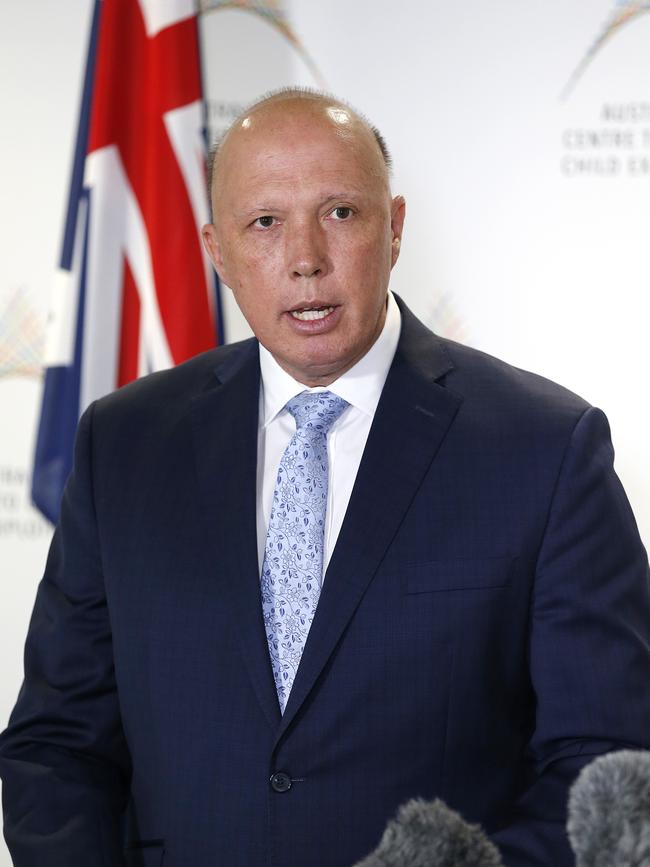The Facebook outrage that’s far, far worse
Encryption move helps pedophiles hide from the law.

Imagine the outcry and further damage to Facebook if the global hi-tech giant were to arrogantly dismiss the concerns of governments and law enforcement bodies around the world to become complicit in hiding the evil of child sexual abuse.
Child sexual abuse so horrific that people just don’t want to hear about it, and yet so perverse and pervasive that every four minutes shockingly explicit material is accessed on the internet.
What’s more, tens of thousands of pedophiles used open-source messengers, such as Facebook, to create, sell and share the cruel and sadistic sexual material during the COVID-19 pandemic.
Children in poor countries are being sold for Bitcoins to satisfy growing numbers of remote sexual abusers who will be able to “go dark” more easily.
Yet, despite campaigns from advanced countries, national and international police forces, and child protection agencies, Facebook is pressing ahead with plans to provide a cloak of secrecy to such behaviour which it concedes involves thousands of their users.
Where is the outrage?
In the interests of protecting the privacy of adults who fear hacking, financial fraud and keeping subscribers, Facebook is preparing to deny poor children around the world the meagre protection of reporting suspicious activity to the authorities.
Allowing subscribers end-to-end encryption — which means people can use the Facebook platform without the existing monitoring and reporting of suspicious behaviour — is the same as its attempts to defeat the Australian government’s precedent-setting media bargaining code.
There was a retreat only after the politically inept bullying of the Australian people — in an attempt to blackmail Josh Frydenberg into backing down — backfired and exposed Facebook’s selfish agenda of putting profits ahead of people, which in turn led to reputational damage and potential commercial losses.

After its bullying failed, Facebook’s Mark Zuckerberg could see the even greater commercial risk of not coming to the table as advertisers and subscribers turned their back on Facebook, and it threatened to spread. Surveys showed people had a solid understanding of what was happening, considered it fair and were putting pressure on Facebook by unfriending the platform.
Yet, on the issue of adopting end-to-end encryption that will provide pedophiles and other criminals with a cloak of invisibility — which relieves Facebook of the responsibility of reporting suspicious activity while still getting paid — there is no public outcry or boycott.
Currently, Facebook and other providers have programs to find and prevent child exploitation on its platforms, from scanning private messages to acting on referrals from law enforcement and other social media sites.
In Australia, this has led to more than 20,000 reports of potential child abuse, and in Britain about 3000 at-risk children are reported each year. At a British House of Commons parliamentary committee hearing in January, Facebook’s lead policy manager, Monika Bickert, admitted the consequence of Facebook “going dark” would “lead to the continued exploitation of some British children it would otherwise help to safeguard”.
Bickert said: “We want to make sure that we are providing an experience that keeps people safe, especially for the crimes that are most at home, and most serious to them.” She added that a survey in the UK showed adults said that “the crimes online that are most concerning to them are data loss and hacking”.
British MPs said United States crime figures on missing children suggested at least 70 per cent of reports from Facebook would go, and Bickert said if “Facebook can’t see it — it can’t report it”.
Peter Dutton, as the minister responsible for the Australian Federal Police, said this week the “the number of reports would drop from 20,000 to a dozen”. The Home Affairs Minister, and counterparts from the US, the UK, Canada and New Zealand, as well as global forums against child sex abuse have been campaigning for three years to get Facebook to not allow encryption and to continue to report suspicious activity.
Unlike the media code laws now in place in Australia, governments can’t pass legislation to force Facebook to give them the data or continue reporting abuse. This is where moral suasion, public outcry and consumer pressure are the obvious alternatives to government pleas that Facebook is essentially ignoring.
At the end of a week when Facebook was brought to heel after recognising the damage to its reputation and commercial model, it is the best time to offer Facebook the opportunity to redeem some of its lost reputation and social licence based on its signalling about caring for people before profits.
As Dutton told Inquirer: “Mark Zuckerberg would not tolerate sexual assault of women in his workplace and yet he is preparing to hide the sexual assault of children on his platform. This is a crucial point. Australians had a taste of Zuckerberg’s decisions putting profit above people, and even more grotesquely the potential to protect criminals who exploit and abuse our children.”
Australian Federal Police Commissioner Reece Kershaw has started a campaign to get parents to not turn away from the risk of child sexual abuse and be aware of what happens on popular social media platforms.
“As a country, we need to be more outraged about those who produce and distribute child exploitation material, and we need to be better engaged when the inevitable debate arises with Facebook and other platforms when they move to end-to-end encryption,” he said late last year.
“To put it simply, when these platforms move to end-to-end encryption, the job becomes harder for police to catch predators.
“And I say this to those who argue that moving towards end-to-end encryption is the privacy they need and deserve, I challenge you to explain that to a child who has been tortured, exploited and repeatedly abused for the gratification of others; explain to that victim that they may never get justice because technology has been designed to keep the identity of their monster a secret.”




Facebook’s arrogant and arbitrary treatment of Australians by suspending access to news, emergency services and community groups to protect profit severely damaged its reputation, turned away advertisers and subscribers and called into question its so-called social licence.